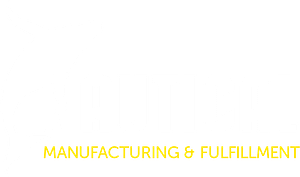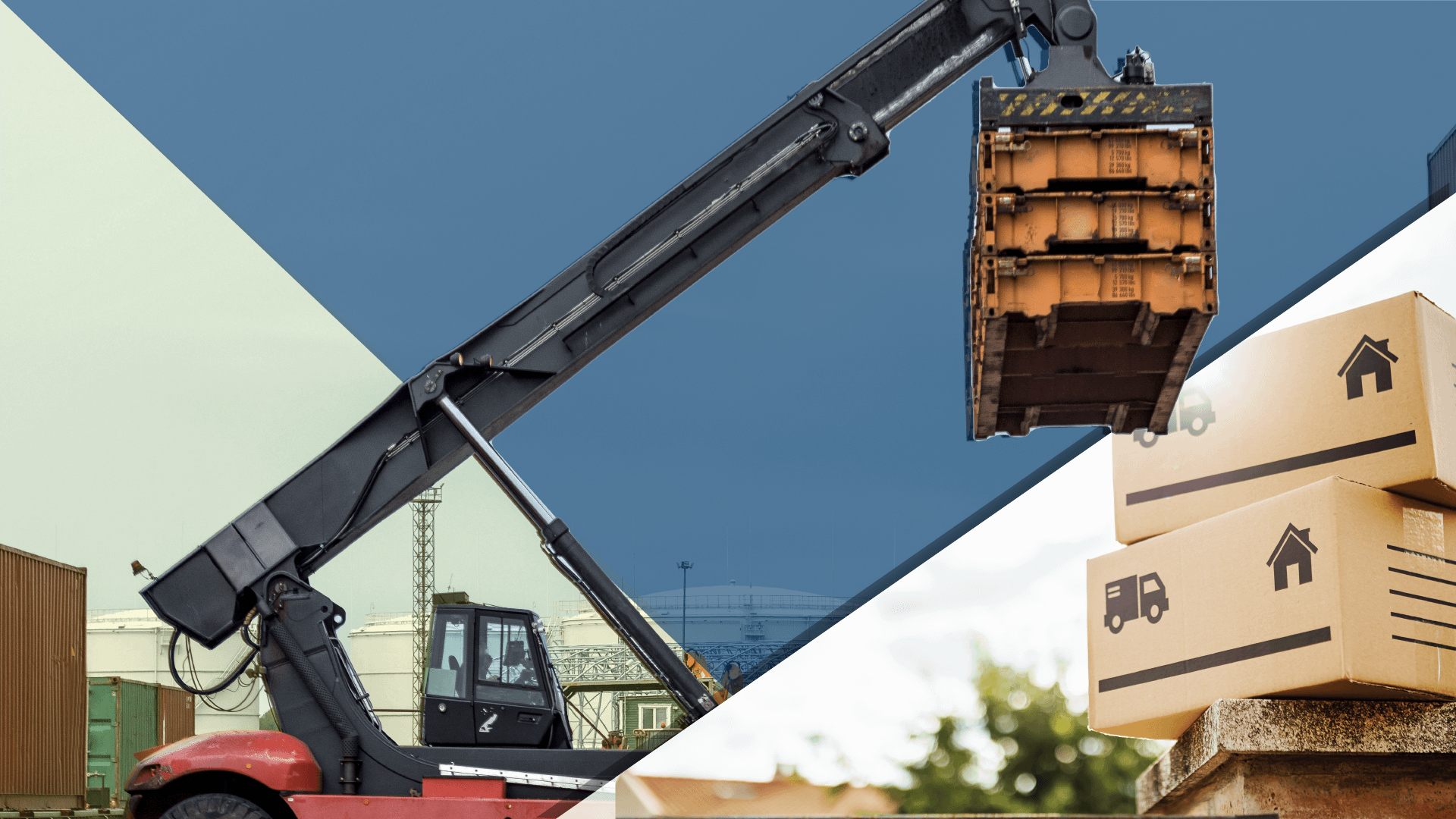For e-commerce businesses, it’s vital to make sure products are being stored and fulfilled quickly and efficiently.
- Over 60% of shoppers abandon carts if shipping, taxes, and other fees are too high.
- Poor delivery experience results in 38% of shoppers looking elsewhere the next time they select a retailer.
- 53% of shoppers report speed of delivery as an important factor for online orders.
- A slow delivery speed results in a quarter of all shoppers backing out of an order.
There are several ways to fill orders: a company can choose to do fulfillment in-house, by partnering with a third-party fulfillment service, or by dropshipping. When you outsource fulfillment to a 3PL company, they handle the entire fulfillment process for you — from receiving your inventory from your manufacturer to restocking returned products. Fulfillment by Amazon (FBA) is a popular option for outsourcing fulfillment but isn’t the best choice for every business. Let’s take a deeper look at the FBA fulfillment option, and when a business should choose it vs an independent 3PL.

When Should a Business Choose Fulfillment by Amazon (FBA)?
Amazon Prime & Reduced Shipping Costs for Customers
Working with FBA allows you to leverage Amazon Prime benefits. Customers will be more inclined to buy something with an Amazon Prime badge. As mentioned above, free shipping is a huge factor in online shopping decisions.
Integrations & Social Media Sales
Amazon offers the ability to use different e-commerce hubs such as WooCommerce, Shopify, and Wix. For companies selling on social channels, Amazon FBA connects to Facebook and Twitter to post listings there.
Flexible Costs & Scalability
What are the Common Issues with FBA?
There are plenty of reasons to work with FBA for your fulfillment needs. But significant issues with FBA have caused some businesses to leave the program, and it’s important for a company to understand the implications of these issues before basing their fulfillment on it.
FBA Prep
Amazon has rigorous standards to meet before you can list products. You must label and pack each product according to Amazon’s receiving guidelines. In some cases, you may even need to label individual items. As you grow, this process can become very time-consuming and cost-prohibitive. It is important to include this in any profitability calculations you conduct.
FBA Inventory Fees and Restrictions
Amazon has implemented an inventory performance index (IPI) to track inventory levels and optimization. If a business is unable to keep its IPI above the minimum threshold, it will be subject to inventory storage restrictions and higher storage fees. In addition, FBA imposes long-term storage fees on products that take longer than 180 days. Lack of Order Customization Through FBA
Amazon FBA doesn’t facilitate much in the way of order customization. Since packaging for your goods will arrive in a box with the Amazon name and logo, customers naturally assume the goods are from Amazon. Not only that, companies are unable to make any modifications to the packaging to promote their brand.
When to Avoid FBA
There are a few reasons other fulfillment options may be better than FBA for your business.
- Companies with slim product margins: FBA costs cut into profit, and for companies that already have a small markup, this can seriously hurt profitability. Generally, sellers on Amazon suggest a minimum 250% markup on an average order to stay profitable.
- Companies with bulky or oversized products: Sellers with large items will need to find a 3PL that specializes in storing and shipping bulky goods.
- Companies where branding is important: If a company wants to customize packaging or add additional marketing inserts with their orders, choosing another 3PL or fulfilling orders themselves is a better route. For companies that desire a more personalized touch, FBA will limit their options.
- Companies with high shipping costs: The free shipping that Amazon provides to Prime members is absorbed by the seller. If a company has high shipping costs, this will hurt its overall profitability
When Should a Company Choose a 3PL Provider?

Availability of 3PLs Across the US
There are over 20,000 3PL businesses operating in the US alone. This gives a company many options when deciding which provider to work with, and effectively requires 3PLs to compete for business–which is great for sellers.
3PLs Provide Order Customization Options
Custom packaging can help a company grow its brand recognition. Over 50% of online shoppers who received their products in a custom package say they are more likely to become returning customers. Working with a 3PL that supports specialty packaging can help a company provide a more personal experience and secure future repeat business.
3PLs Provide Lower Shipping and Storage Costs
Most 3PLs will have reduced shipping costs over listed rates. By leveraging their relationships, 3PLs pay less for shipping than businesses can often get on their own. Because shipping costs are often one of the highest costs a business pays, these cost savings add up to a business’ bottom line.
3PLs Give Better Customer Service
Though customer service ratings can vary by 3PL provider, many are able to provide exceptional customer experience by responding quickly to issues that occur, and providing clear and helpful communication with sellers. Phone calls are answered by trained staff, located onsite at the warehouse, who can promptly address any inquiries or issues.
What Are Some Common Issues with 3PLs?
Using a 3PL isn’t right for every business. Here are some issues that may arise that companies need to consider.
Companies with Low Order Volume
A small business or a new one with low order volume may not get much benefit in working with a 3PL. Until a business has a large enough shipping volume, it may prefer to keep fulfillment in-house.
Consider all Fees Associated with Using a 3PL
While 3PLs add significant value to the fulfillment process, fees can quickly begin to add up and rapidly cut into a business’ profit. For some businesses, these costs may be more than they can absorb. While businesses at scale typically achieve high returns through partnering with the right 3PL, it’s important to be aware of all of the costs involved with any prospective 3PL provider. 3PLs typically charge for services like:
- Storage—Depending on the 3PL, storage fees may be charged per square foot or per pallet.
- Receiving—When a 3PL receives truckloads, they often charge a flat fee per shipment received.
- Fulfillment—Additional value-added services like pick and pack, kitting, and order processing will add additional costs tacked on to an order.
- Shipping—A business will need to consider average shipping costs for orders. While many 3PLs can provide discounted rates on shipping, a business will need to compare these rates, along with other services, to select the optimal 3PL partner.
Choosing the Best Fulfillment Option for a Business
Regardless of your choice of fulfillment partners, outsourcing the fulfillment operations to specialist providers often helps a company focus on what it does best. For companies looking to integrate into and leverage Amazon’s network, FBA might be the best bet. If brand experience, customization, and customer service are more important, choosing a 3PL provider that aligns with a business’ goals is likely to be the better choice.

Choosing 3PL Services From Nautical Manufacturing and Fulfillment
If your business is considering partnering with a 3PL provider, talk to a Nautical representative to see if we’re a good fit. With a newly-opened warehouse containing 450,000 sq ft of warehouse space, Nautical specializes in many fulfillment services your business needs to succeed. We also offer supply-chain services upstream, helping companies source high-quality, environmentally friendly products from markets around the world and transport them to your business at significant cost savings.




